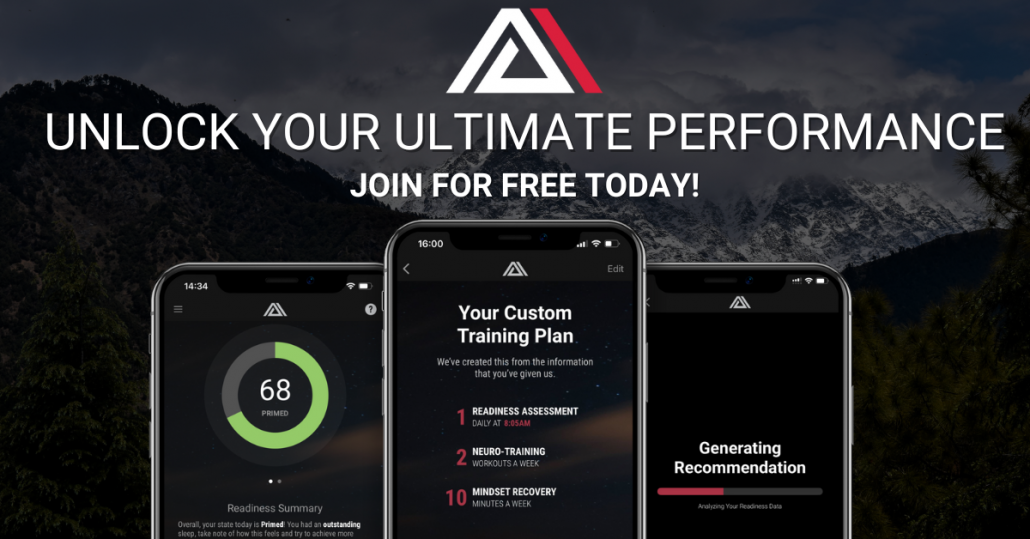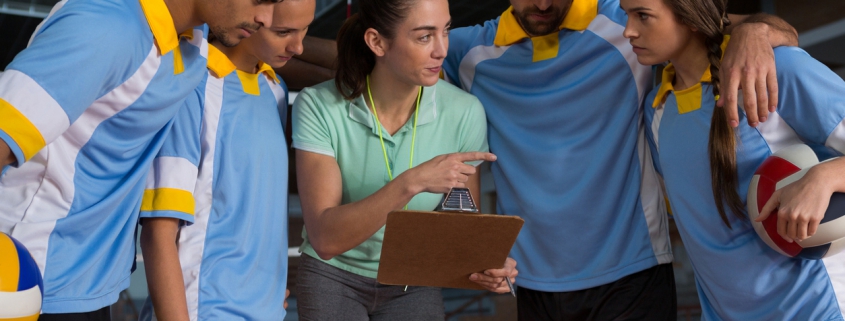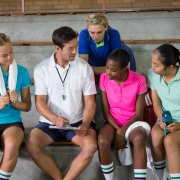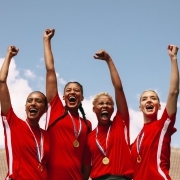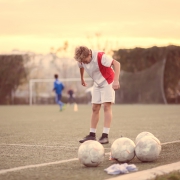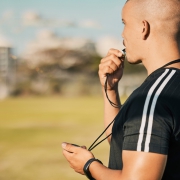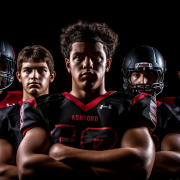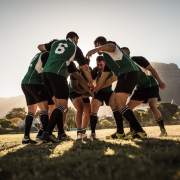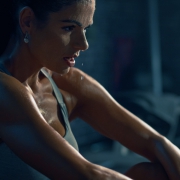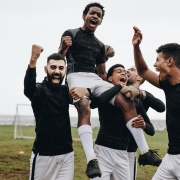What Separates a Good Coach From a Great Coach?
The difference between a good coach and a great coach could mean winning or losing. A coach teaches and provides guidance to athletes. But a great coach understands each of their athletes, their strengths and weaknesses, what drives them, and how to get the best out of each athlete or player.
But what makes me qualified to talk about coaches — more specifically, what makes one good, and another great?
I’ve worked with a few coaches when I used to run, one of which coached team GB runners. I’ve also interviewed a bunch of athletes on sports injury and discussed the coaching approach and how their coach reacted and supported their recovery and return to training.
So, I’ve seen first-hand the difference between a good coach and a great coach. But I’ve also read up on the literature to provide further details and insights into the very best coaches.
What makes a great coach?
Many coaches are good at what they do — they train their athletes for competition, and many of them go on to succeed.
But from personal experience and from talking to others, great coaches provide equal attention and interest to all of their athletes. I’ve heard time and time again (and you might have too) of the coach who focused on their “star athletes,” paying less attention to their other athletes who then get injured or fall out of love with the sport.
And sometimes, a coach can give terrible advice — I’m talking about running through injuries and not listening to the symptoms the athlete proclaims (fortunately, this one is not from personal experience).
A great coach is someone who:
- Listens to the needs of their athletes
- Knows how to keep training fun
- Understands sports injury and how to prevent it
- Practices excellent communication
Keep reading to find out more about each trait.
“I think the most important thing about coaching is that you have to have a sense of confidence about what you’re doing. You have to be a salesman, and you have to get your players, particularly your leaders, to believe in what you’re trying to accomplish on the basketball floor.” — Phil Jackson.
Related: What Qualities Make A Great Sports Coach?
Listens to the needs of their athletes
A good leader coaches a team, while a great coach coaches their athletes.
For example, some athletes respond better to lower-intensity training than others — if they train too hard too often, they’re more likely to become injured. Likewise, other athletes require more intensity to reach their peak and are less likely to encounter injury.
Athletes and coaches should have a communicative relationship — coaching shouldn’t be a dictatorship; it should be more of a democracy.
Great coaches listen to the needs of their athletes and adapt the training to best suit them.
Knows how to keep training fun
We’ve covered the topic of athlete burnout a ton on the Rewire blog — it’s so important. Therefore, coaches should have an awareness of burnout, including the risk factors and how to prevent it.
You can have the most talented and hard-working athlete in the world, but if they succumb to burnout, they may never set foot in the pool, on the court, or on the track again.
Dr. Ralph Richards, former swim coach at the Australian Institute of Sport, states the importance of variety in training — helping to combat mental fatigue and burnout [2].
For example, you could include some kind of fun competition into training once in a while. You should also mix up the sessions so you’re not repeating the same workout week in and week out.
Variety is key here — a great coach has a mix of key sessions and knows when their athletes need a break from their training with something a little more relaxed and fun.
Understands sports injury and how to prevent it
The number of sports injuries is increasing. For example, one study from 2021 investigating the epidemiology of sports-related injuries in 498 amateur and professional adolescent athletes found a staggering 40.4% of athletes experienced an injury in 2019 [1]. That’s almost half of the athletes in the study.
Higher injury rates were associated with a mix of factors, such as increased hours spent training, not performing warm-ups, using inadequate sports facilities, and performing improper technique without the supervision of a coach.
A great coach teaches their athletes the importance of warm-ups and cooldowns and reinforces proper technique. While some risk factors cannot be eliminated entirely, a great coach knows how to minimise these.
Moreover, any great coach should have an excellent understanding of sports injuries and how to prevent them. This includes preventive exercises, proper warmups and cooldowns, and knowing how to listen to their athlete’s concerns, and respond appropriately, e.g. prescribing rest and not encouraging the athlete to push through the pain (again, advice I’ve heard other coaches tell their athletes).
A great coach practices excellent communication
Excellent communication between coaches and athletes is fundamental.
A great coach knows how to talk to their athletes, understand their needs, and adapt the training to best suit them.
While communication is a two-way street, a great coach is easy to talk to and offers exceptional advice to athletes who need it most.
“Mentoring is a brain to pick, an ear to listen, and a push in the right direction.” — John Crosby.
Coaches can use Rewire to help their athletes reach peak performance
If you’re a coach, you can use Rewire to gain a better holistic understanding of your athletes. You can measure their daily readiness, identify trends in performance, recovery and fatigue states, and even understand factors impacting their performance across physiological, cognitive, and emotional domains. Rewire for Teams allows coaches to make informed coaching recommendations and support a culture of health and wellness amongst athletes.
Rewire is the ultimate tool for coaches and practitioners — allowing great coaches to do exceptional work.
Book a free consultation today to learn more about how Rewire can help your team.
References:
- Prieto-González, P., Martínez-Castillo, J.L., Fernández-Galván, L.M., Casado, A., Soporki, S. and Sánchez-Infante, J., 2021. Epidemiology of sports-related injuries and associated risk factors in adolescent athletes: An injury surveillance. International journal of environmental research and public health, 18(9), p.4857.
- https://memberdesq.sportstg.com/assets/console/customitem/attachments/burnout-rrichards.pdf
